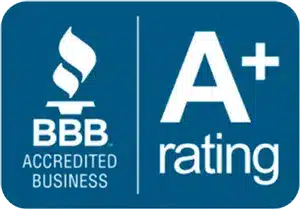It can be a distressing experience to learn that you have an STD. While it’s natural to be worried, postponing treatment out of fear is not the best course of action. If you’re currently facing the difficulties that come along with an STD, seeking prompt treatment is the only way to prevent complications and reduce transmission in the future. At Equality Health, we bring you the best STD treatment in Oklahoma that can help you regain control of your health. Let us help you overcome your STD and enhance your sexual health with our comprehensive STD treatment options. Ready to start your recovery journey?
Understanding STD Treatment in Oklahoma
At Equality Health, we understand that everyone’s journey when dealing with an STD is different. Because of this, we place a great priority on creating personalized treatment regimens that are suitable for your particular case. We are aware that a number of factors, including your personal risk factors, STD type, and current health state, are crucial in selecting the most effective course of treatment for you.
At our local STD treatment center, we amplify our treatment efficacy by considering the following risk factors:
- Having anal, oral, or vaginal intercourse without protection.
- Having multiple sexual partners.
- Engaging in sexual activity under the effects of alcohol and drugs.
- Having a history of different STDs.
We also consider the following factors to personalize your treatment effectively:
- Your overall health
- Medications you’re taking currently
- Treatment for STDs in the past
- Reaction to past treatment
- Any ongoing allergies
We take this approach to personalize your STD treatment so that you receive the best care and so that your treatment becomes successful.
Antimicrobial Treatment for Bacterial STDs
We cannot overstate the importance of timely treatment for bacterial STDs. The most effective form of treatment for such STDs is with antimicrobial medications. However, the exact treatment plan depends on the exact STD you have. At Equality Health, here’s our approach to addressing and treating bacterial STDs:
Chlamydia
- Symptoms: Unusual genital discharge, pain during urination, infertility, pain and bleeding during sex, pelvic pain, and bleeding in between periods.
- Treatment: We commonly treat Chlamydia with oral-based medications that you take in a one time dose or for a week.
Gonorrhea
- Symptoms: painful or burning sensation during urination, pus-like genital discharge, an urge to urinate frequently, spotting during periods, pain during sex, and sharp pain in the lower abdomen.
- Treatment: We commonly treat Gonorrhea with a one time dose of an injectable antibiotic
Syphilis
- Symptoms: Sores, sore throat, rashes, night sweats, fever, swollen lymph nodes, headaches, hair loss, and muscle aches.
- Treatment: We use a single dose of Penicillin injection to treat Syphilis. You may require more than one dose depending on several factors.
It is absolutely crucial that you complete the full course of STD treatment antibiotics. Not completing the course or skipping doses may result in ineffective treatment. You may develop a resistance to these medications, or your infection may not completely resolve. Bacterial infections that go untreated can result in spreading to other areas of the body, causing infertility, development of Pelvic Inflammatory Disease (PID), or even increased risk of HIV transmission. So, always follow your prescribed treatment plan to avoid serious health complications.
Antiviral Treatment for Viral STDs
Along with bacterial STDs, we also provide treatment options for viral STDs. Treating viral STDs is more difficult because most viral STDs have no cure. The best way to treat them is using antiviral drugs to manage symptoms and lower the risk of transmission. Here are the common viral STDs that we treat at Equality Health:
Human Immunodeficiency Virus (HIV)
- Symptoms: Weakened immune system, fever, muscle aches, sore throat, night sweats, inability to fight against infections and diseases.
- Treatment: While HIV is incurable, we offer Antiretroviral therapy (ART) to suppress the virus for HIV treatment. ART helps manage the symptoms by targeting different stages of the HIV life cycle.
Hepatitis C
- Symptoms: Pain and swelling in the abdomen, pale stools, dark urine, fever, fatigue, itching, poor appetite, and jaundice.
- Treatment: We use Direct-acting antiviral (DAA) medications for Hepatitis C treatment. These medications block the viral replication in your body and have a success rate of 95% in curing the infection.
While antiviral medications work effectively to reduce and manage the symptoms of viral STDs, they also cause various side effects, such as:
- Gastrointestinal issues
- Nausea
- Fatigue
- Fever
- Vomiting
- Diarrhea
- Dizziness
- Joint pain
- Insomnia
At Equality Health, we advise you to begin your antiviral treatment right away. An early initiation of antiviral treatment increases the effectiveness of the treatment. Remember, most viral STDs are incurable. That’s why consistently taking the medications as prescribed is extremely important to lowering the viral load in your body.
Follow-up Care and STD Testing in Oklahoma
During your STD treatment, we highly prioritize follow-up care and laboratory testing. These are crucial elements that ensure successful treatment outcomes. Similarly, they also monitor for reinfection or complications that arise after your treatment is complete. Here are our recommended timelines for follow-up visits and STD testing on the basis of your specific STD:
- Chlamydia and Gonorrhea: For these STDs, we recommend a Nucelic Acid Test (NAT) 3 months after completing the treatment to confirm that there is no presence of the bacteria.
- Syphilis: For Syphilis, we schedule a follow-up visit with our patients every 3,6 and 12 months after the treatment is complete. During this visit, we monitor if there are any lingering symptoms of the disease. Similarly, we conduct blood tests like Rapid Plasma Reagin (RPR) to check for successful treatment.
- Human Immunodeficiency Virus (HIV): After starting Antiretroviral Therapy (ART) for HIV, we recommend a follow-up visit every 3 to 6 months. Depending on your situation, you may need more visits. We monitor the amount of HIV in your blood and your CD4 cell count through HIV viral load testing from blood tests.
- Hepatitis C: For Hepatitis C, we advise a follow-up visit 12 or more weeks after the treatment is complete. This Hep C test helps us confirm if you are cured and if the liver still has signs of damage.
Prevention Counseling and Education
At Equality Health, we also offer counseling and education as a part of our STD treatment. Through counseling and education, we aim to:
- Educate you about safer sexual practices.
- Evaluate your STD risk factors and work on behavior modification.
- Encourage you to communicate your STD status to your sexual partners.
- Promote routine STD testing.
- Support you emotionally throughout the treatment.
- Inform you about vaccines available for hepatitis B.
We help you learn about the following risk-reduction strategies to reduce the transmission of STDs:
- Avoid sexual activity or limit your partner to one.
- Properly use condoms every time you have sex.
- Test for STDs on a regular basis.
- Consider getting STD vaccines.
- Be honest with your sexual partners about your sexual history and STD status.
- Abstain from sharing needles.
It’s important to keep in mind that these strategies do not make STDs any less harmful. The two most important things you can do to keep your sexual health are to adopt a healthy lifestyle and regular testing.
Multidisciplinary Care and Specialist Referrals For STDs In Oklahoma
We at Equality Health are committed to offering you a variety of thorough STD treatment options. We truly believe in the significance of multidisciplinary care because of this. To provide you with the best STD treatment plan in Oklahoma, our medical personnel work effectively in collaboration. Through this partnership, our specialists contribute their unique experience to ensure that you receive a thorough test, an STD diagnosis, and the most appropriate treatment.
Similar to that, we also help with referrals if you have major STD-related issues and need specialized care from urologists or gynecologists. We provide everything you need to meet your specific STD needs, including specialized clinics, counseling services, and support groups. So, with our multidisciplinary approach to STD care, you get complete support, from STD testing to treatment and follow-up.
Contact Us For the Best STD Treatment in Oklahoma
Are you ready to take the power back when it comes to your sexual health? At Equality Health, we work relentlessly to make Oklahoma a healthier and happier place with our specialized STD treatment options. If you’re worried about costs and insurance, we have programs to provide our STD treatment to people with no insurance. Feel free to call us at (405) 761-2762 and begin your treatment today! We offer STD treatments in these parts of Oklahoma: Edmond, Moore, Norman, and Oklahoma City.
Frequently Asked Questions (FAQs)
Yes, most STDs can be treated with proper treatment and medications. We can easily cure bacterial STDs like Chlamydia, Gonorrhea, and Syphilis with antibiotics. However, viral STDs like HIV is incurable. They can, however, be managed with antiretroviral medications. By consistently taking medications as prescribed, you can reduce the risk of transmission and other complications. For successful outcomes of STD treatment, early detection and treatment are extremely important.
Equality Health is your #1 choice for the best STD treatment in Oklahoma. We offer STD treatment options for bacterial STDs like Chlamydia, Gonorrhea, and Syphilis and viral STDs like Hepatitis C and HIV. Our STD testing and treatment process is highly confidential to safeguard your information. Additionally, we always make sure that we provide a safe environment during testing and treatment. Whatever your situation, we provide a comprehensive treatment plan to suit your needs.
Depending on your diagnosis, STD treatment in Oklahoma costs can vary. The following factors determine the final price:
- The type of STD you have
- Diagnostic tests
- The healthcare facility you choose (clinic or hospital)
- The experience of your healthcare provider
- Location of the healthcare facility
- Whether you have insurance or not
- The type of medications prescribed
- Follow-up visits
To prepare for an STD treatment, you can first make an appointment with us. You must be ready to discuss your sexual history, current symptoms, and history of treatments in the past. If you have already tested positive, bring your lab results with you. Similarly, you should remember all the medications you’re taking to let your healthcare expert know and also communicate about any allergies you may have. Lastly, before speaking to the healthcare expert, refrain from engaging in any sexual activity.


